No peeling required
Prep: 10 mins
Cook: 40 mins
Total: 50 mins
Servings: 4 Servings
Yield: 6 Cups
This recipe is the simplest gateway to butternut squash soup. It has only four ingredients (not including oil, salt, and pepper, but you have all that in your pantry, right?), contains no cream, and is all about the rich, sweet flavor of the butternut squash. Because the recipe is so simple, this squash soup is an amazing canvas for all your favorite soup toppers, from croutons to swirls of coconut cream.
How To Make Butternut Squash Soup
There’s always more than one path to take for any dish, but for butternut squash soup I am partial to roasting and here’s why: roasting concentrates the squash’s flavor, bringing out all the sweet notes and even getting a little caramelized goodness in the process. I also love that roasting can easily be done ahead of time. Often, I’ll throw a sheet pan of squash into the oven when I’m baking or roasting something else, then the squash is ready to go when I want to make soup.
Is It Better to Steam or Roast Butternut Squash?
You can certainly steam butternut squash for soup, and it is faster than roasting, but steaming dilutes the beautiful flavor of the squash and you won’t get any deep, caramelized flavors from steaming.
Just remember that you can always roast the squash ahead of time, and if you’re really strapped for time, you can use pre-cut squash cubes in this recipe. Just keep an eye on them in the oven because they will roast up a lot faster than halved butternut squash.
Should I Peel My Butternut Squash Before Roasting?
In this recipe the squash is roasted with the peel on, and that’s because it is dramatically easier to remove the peel from a cooked squash than a raw one. Unless you’re planning to roast cubed butternut squash, don’t bother peeling it beforehand.
Tips for Making Butternut Squash Soup
- Cut the squash carefully—Use a sharp, long knife and a kitchen towel to cut your squash. Trim the ends of the squash so it can stand up and use the towel to press down the tip of the knife straight down the center of the squash
- Protect the garlic—Roasting the garlic in the concave portion of the squash protects it from the heating element to prevent burning, only leaving the sweet roasty notes behind.
Make Ahead
- The squash can be roasted 2 days in advance before pureeing.
- The soup can be made up to 3 days ahead. Reheat gently in a saucepan over medium-low heat.
“There are SO many variations of squash soup out there, it’s exhaust-a-fying. This soup is a great change of pace. It’s sweet, earthy, bright, and creamy. I tested with chicken stock, but if you want to lean into sweetness, go with vegetable stock. Arranging the garlic cloves under the squash is genius, and I’m totally stealing this move!” —Elizabeth Mervosh
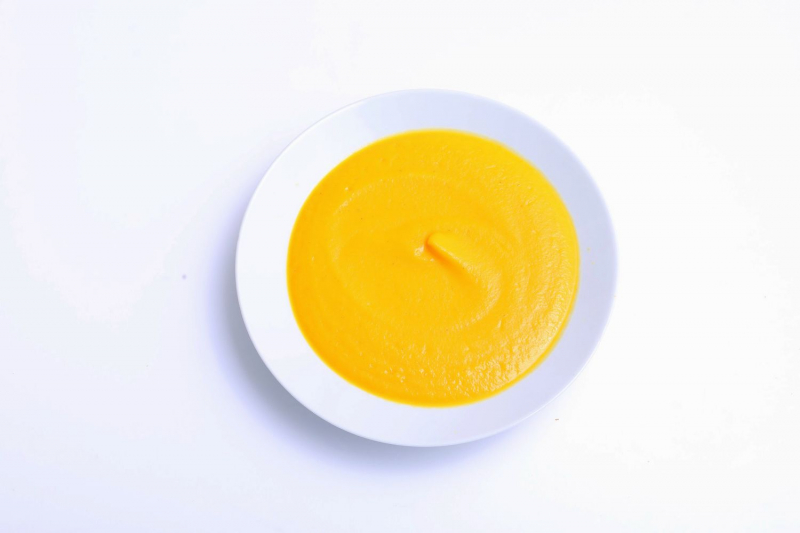
A Note From Our Recipe Tester
Ingredients
-
2 small (1 3/4 pounds each) butternut squash
-
1 tablespoon olive oil
-
1/2 teaspoon fine salt
-
1/4 teaspoon ground black pepper
-
2 garlic cloves, peeled and smashed
-
2 cups chicken or vegetable broth
-
2 tablespoons unsalted butter
Steps to Make It
-
Gather the ingredients. Preheat the oven to 400 F.
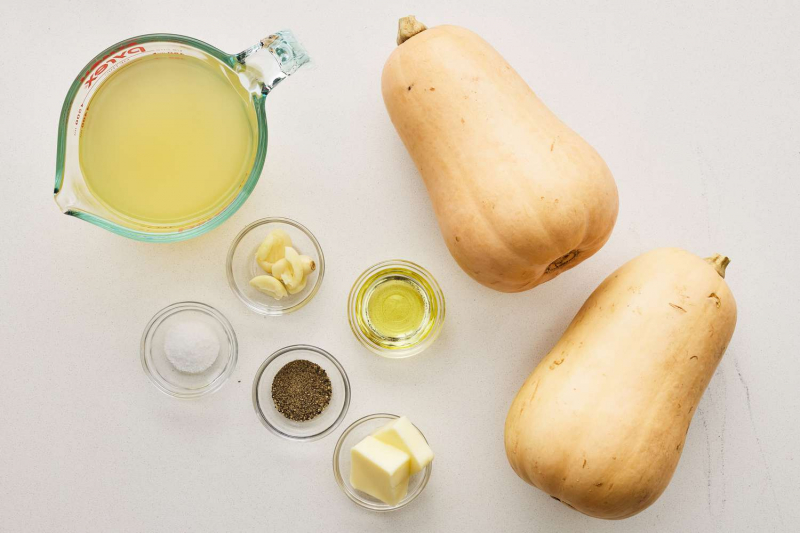
-
Trim off the ends of 2 small (1 3/4 pounds each) butternut squash and halve them lengthwise. Scoop out and discard the seeds or save them for roasting.
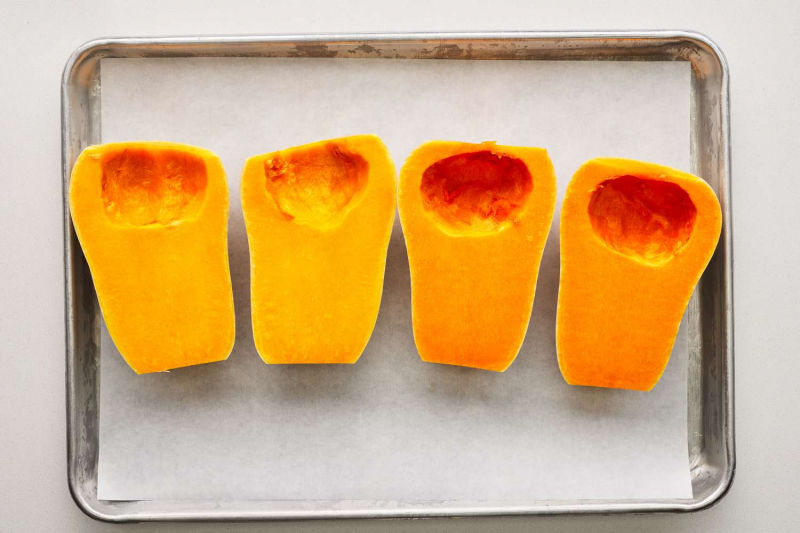
-
Rub the cut sides of the squash with 1 tablespoon olive oil and sprinkle with 1/2 teaspoon fine salt and 1/4 teaspoon ground black pepper.
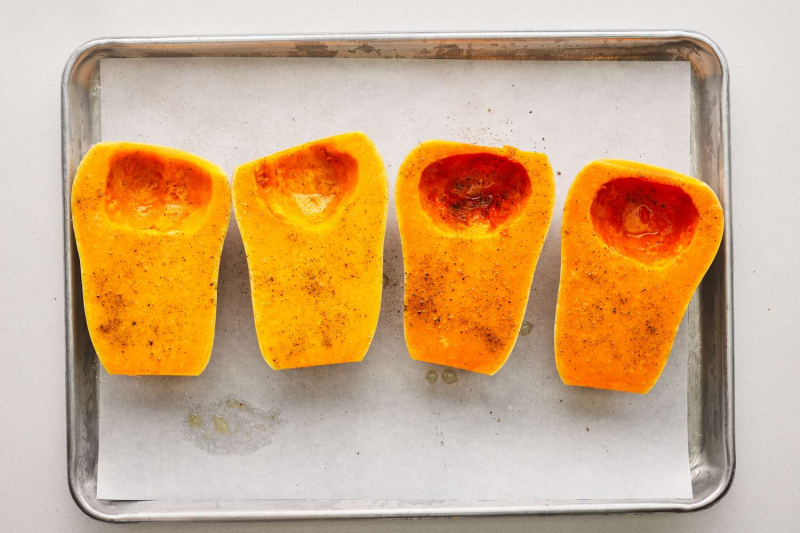
-
Place the squash cut-side down on a parchment paper-lined baking sheet. Place 2 medium garlic cloves, peeled and smashed underneath the concave portions of the squash.
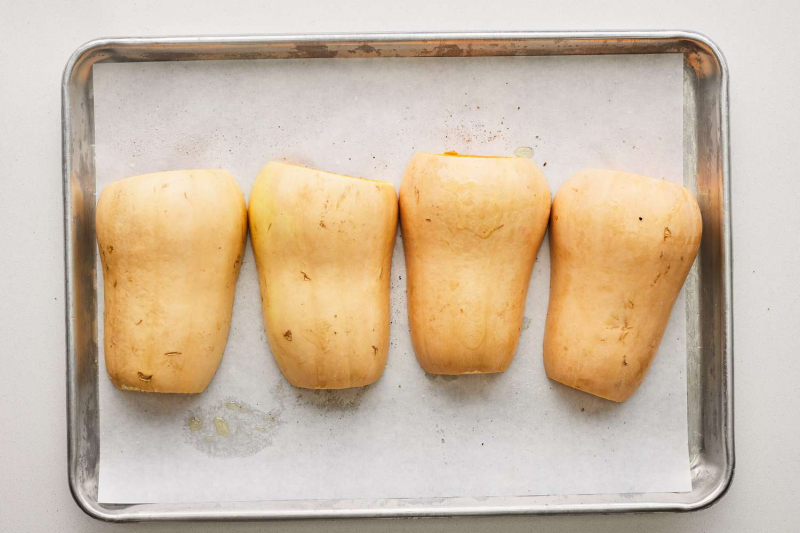
-
Bake until the squash and garlic cloves are very tender and browned, about 40 minutes. Let cool on the baking sheet for 10 minutes.
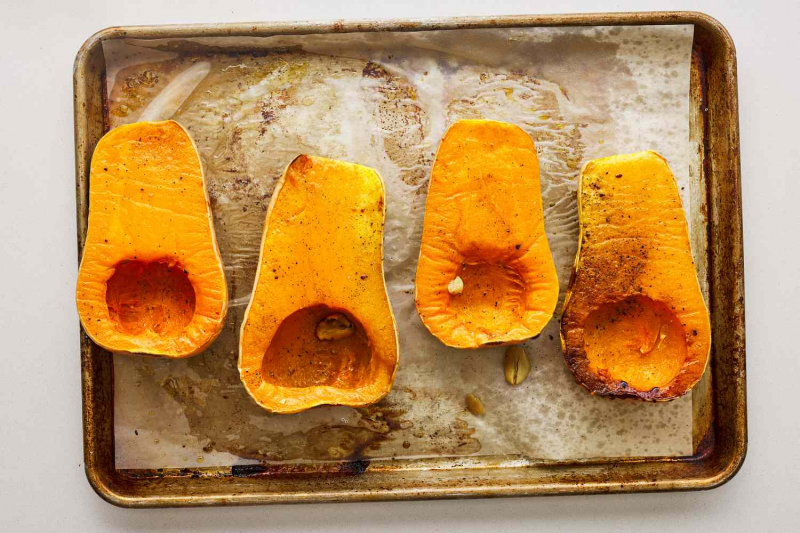
-
Scoop out the butternut squash flesh and add to a blender along with the garlic. Pour in 2 cups chicken or vegetable broth and secure the lid on the blender. Remove the center piece to allow steam to escape and place a clean towel over the opening. Blend until very smooth, about 1 minute.
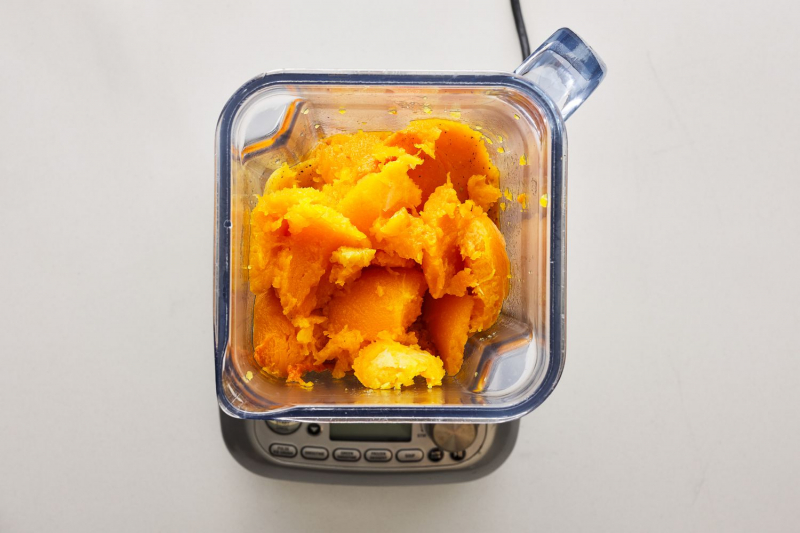
-
Add 2 tablespoons unsalted butter to the blender and blend until smooth and lightened in color slightly, about 30 seconds.
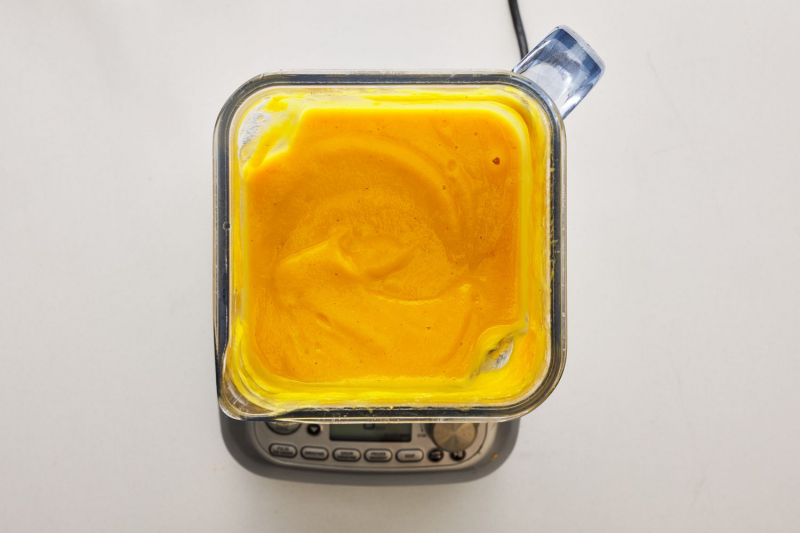
-
Serve immediately or warm gently in a saucepan over medium heat.
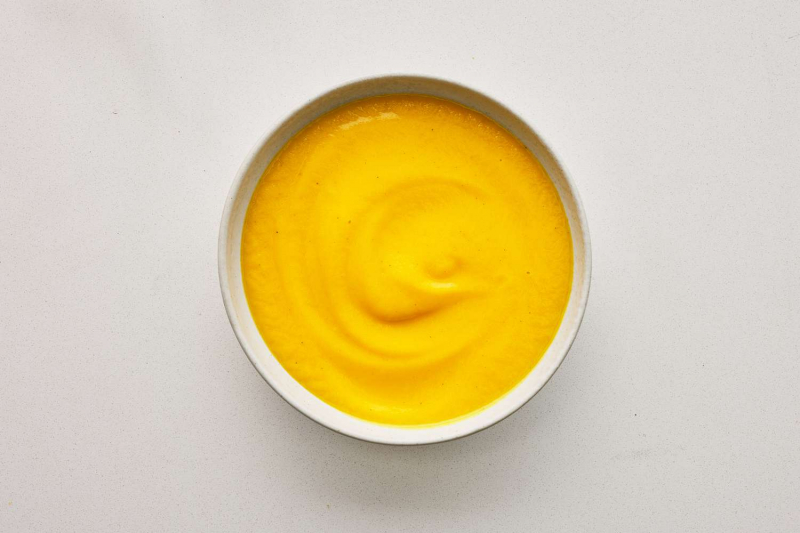
How to Store and Freeze
Let cool to room temperature and store in an airtight container in the refrigerator for up to 1 week or in the freezer for up to 3 months.
Feeling Adventurous? Try This:
- Substitute another winter squash—Use acorn squash or buttercup instead of butternut.
- Use garlic powder—Feel free to use powdered garlic in the place of the fresh garlic. Adjust the seasoning to your liking.
- Add spices—I love adding extra spices to my butternut squash soup, like curry powder, cinnamon and nutmeg, or Aleppo pepper. You could even use a dash of pumpkin spice.
- Add a touch of richness—Drizzle something creamy over top like coconut cream, yogurt, or heavy cream.
- Go wild with garnishes—Garnish with black pepper, chopped fresh chives, crunchy toasted nuts or seeds, or an herb-flavored oil.
- Use pre-cut squash—Use chopped butternut squash and roast on parchment paper until tender and lightly browned. Be careful not to burn the squash, since it is not protected by the skin.
| Nutrition Facts | |
|---|---|
| Servings: 4 | |
| Amount per serving | |
| Calories | 250 |
| % Daily Value* | |
| Total Fat 10g | 13% |
| Saturated Fat 4g | 21% |
| Cholesterol 18mg | 6% |
| Sodium 743mg | 32% |
| Total Carbohydrate 43g | 16% |
| Dietary Fiber 13g | 46% |
| Total Sugars 8g | |
| Protein 5g | |
| Vitamin C 60mg | 302% |
| Calcium 173mg | 13% |
| Iron 3mg | 14% |
| Potassium 1159mg | 25% |
| *The % Daily Value (DV) tells you how much a nutrient in a food serving contributes to a daily diet. 2,000 calories a day is used for general nutrition advice. | |


